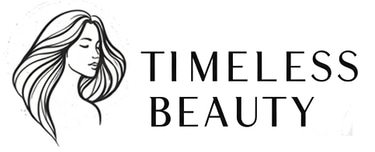Radiant Living: Wellness For women in their 40s
Discover 'Radiant Living', a comprehensive guide to wellness for women in their 40s. Redefine your 40s with holistic wellness tips that empower the whole woman.
WELLNESS
5/7/20253 min read


Embracing Your 40s: A Period of Renewal
Entering your 40s can feel like a significant milestone, often marked by a deeper understanding of oneself and the world around you. This decade is not just about aging; it is about embracing a vibrant lifestyle that prioritizes wellness and vitality. Today’s women in their 40s are at the peak of their lives, juggling careers, family, and personal goals. While this stage is full of potential, it is essential to remember that self-care must remain a priority amidst the hustle and bustle of daily life.
Wellness Practices for Peak Performance
To achieve a strong, centered, and radiant existence, women in their 40s should adopt wellness practices that resonate with their current lifestyle. This means integrating healthy habits into daily routines, fostering physical, mental, and emotional well-being. Nutrition plays a crucial role; a balanced diet rich in fruits, vegetables, whole grains, and lean proteins can significantly enhance energy levels and overall health. As metabolism does begin to slow in this decade, it’s essential to eat mindfully and nourish your body appropriately.
Moreover, incorporating regular physical activity is vital. Whether it's through yoga, walking, or strength training, staying active helps combat fatigue, maintain flexibility, and improve cardiovascular health. Women can benefit from finding a fitness routine that not only keeps them fit but also brings joy and relaxation. Consistent exercise can lead to heightened confidence and radiance, allowing women to thrive during this impressive stage of life.
The Importance of Mental Well-being
Mental health is equally important as physical health, especially for women who often take on multiple responsibilities. The demands of work, family, and personal ambition can lead to stress and burnout. Therefore, it is essential to create a mental wellness plan. Regular mindfulness practices, such as meditation or journaling, can enhance self-awareness and help manage stress effectively. Additionally, setting aside time for hobbies and activities that spark joy can significantly elevate one’s mood and outlook.
Lastly, it is crucial to establish a support system. Connecting with friends, participating in community groups, or seeking professional guidance can provide the necessary support and encouragement. Surrounding yourself with like-minded individuals creates an environment conducive to sharing experiences and cultivating a growth-oriented mindset.
In conclusion, your 40s can truly be your new 20s if you embrace wellness as a priority. By focusing on comprehensive health—both physical and mental—women can lead a life that feels strong, centered, and radiant. This decade offers a unique opportunity to redefine your identity, enhance your well-being, and thrive in every aspect of your life.
Nourish Your Body & Keep It Moving
Healthy eating and regular movement are the foundation of long-term wellness, no matter your age. But in your 40s, they become even more crucial. As metabolism naturally slows and weight gain becomes more common with each passing decade, now’s the time to build habits that will serve you well for years to come.
Support Your Bones
Bone health becomes especially important in your 40s. Women typically reach peak bone density in their late 20s to early 30s, so protecting that strength before menopause is key.
Make sure you’re getting enough Vitamin D—many women are unknowingly deficient. Ask your doctor if a supplement might help. And if you smoke, consider quitting; tobacco use is linked to higher osteoporosis risk and earlier menopause.
Prepare for Menopause
Menopause often begins to take shape in your 40s, even if the average onset is 51. This transitional phase—called perimenopause—can come with symptoms like:
Hot flashes or night sweats
Vaginal dryness or lower libido
Menstrual changes (heavier, lighter, or more irregular cycles)
If your period lasts more than 10 days or you go more than three months without one, see your doctor to rule out other health concerns.
Staying active and maintaining a healthy weight can ease the transition, but for many women, treatments like hormone therapy can help too. Talk with your doctor to explore what’s right for you.
